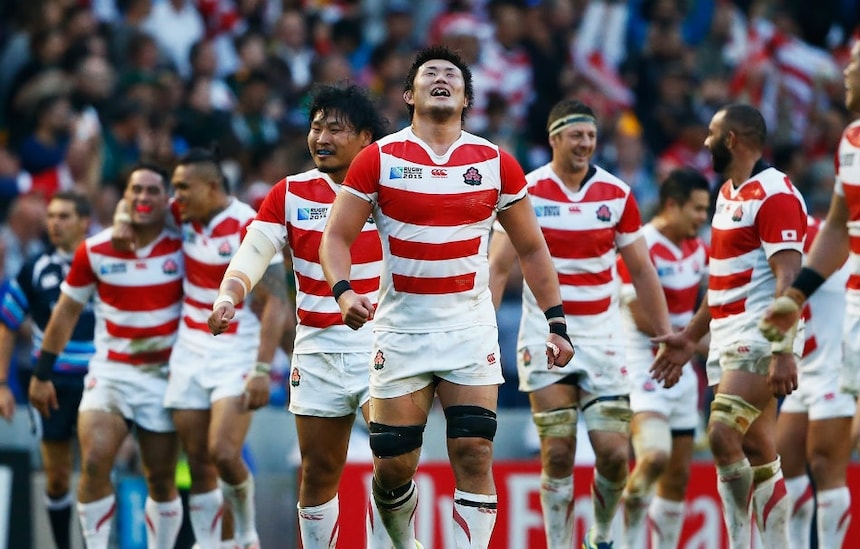9 Things to Know About Rugby in Japan
Riding the back of a stunning victory over South Africa in the 2015 Rugby World Cup (RWC), Japanese rugby has never before enjoyed such popularity among the Japanese public. The Brave Blossoms, as the Japanese rugby team is known, showed world rugby that through hard work and a never-give-up attitude, even a minor team can overcome the odds.
https://www.youtube.com/watch?v=dN-U1xe-0uw
Let’s take a look at nine things that have shaped—or will shape—Japanese rugby as it tries to establish itself as a top-three sport in Japan.
1. 2015 Rugby World Cup Success
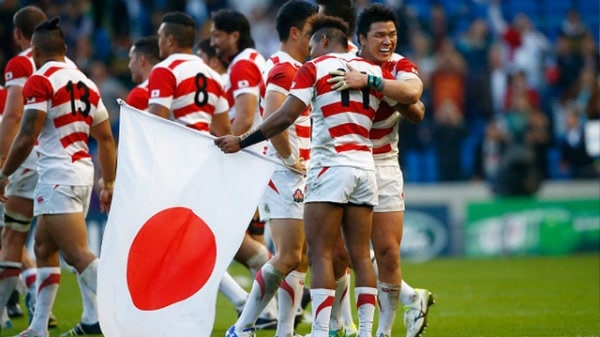
https://www.youtube.com/watch?v=JXhrwadiFQ4
Let’s begin with the obvious. Japan, considered before this tournament to be minnows of world rugby, pulled off one of the greatest—if not the greatest—upsets in rugby history, winning 34-32 over South Africa with a magnificent extra-minute try to seal the deal. Their next game against Scotland, which they lost 45-10, drew an astounding 20 million Japanese viewers before they went on to beat Samoa 26-5 and the United States 28-18.
Unfortunately, they became the first team ever in a World Cup to secure three victories in the group stage and not progress to the quarter-finals. However, in the eyes of the Japanese public back home they were already heroes, and under the guidance of their coach, Eddie Jones, had put Japan well and truly on the global rugby map.
2. A Star is Born
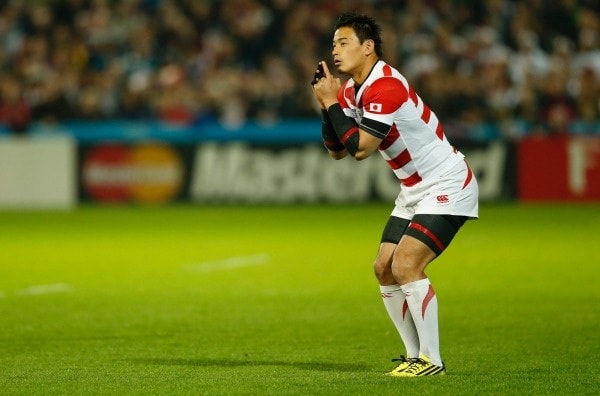
http://nicejapan.co.nz/news/this-pose-goromaru%EF%BC%9F/
Ayumu Goromaru, one of the stars of the 2015 RWC as the fullback (No. 15) for the Brave Blossoms, is now a household name appearing in multiple TV commercials.
He's best known for his unique stance before taking his placement kicks. Actually, the way he clasps his fingers together looks like he’s setting up for a colossal kancho (for those lucky enough not to understand, see 12 Things to Know About Teaching Kindergarten). But with his good looks and boyish smile, he's the perfect ambassador for Japanese rugby.
3. Japan Will Be Hosting the 2019 Rugby World Cup (RWC)
https://www.youtube.com/watch?v=KOzADjEyKME
Although the 2019 RWC finds itself in the shadow of the 2020 Tokyo Olympics, there's no denying that as the tournament approaches, rugby fever will be taking hold of the country once again. Expect replays upon replays of that infamous victory over the No. 3 team in the world to be played across the nation. Good if you're a Japanese supporter—not so good if you're a South Africa fan!
4. National Stadium Debacle
https://www.youtube.com/watch?v=M-gQN-2O_XE
Back in early 2013, Zaha Hadid, a U.K.-based architect, won the commission to design the new Japan National Stadium that was to be the centerpiece of the 2019 RWC. However, her design came under heavy criticism due to it resembling a bicycle helmet, turtle or toilet seat, plus its spiraling costs.
In the end, the Japan Sports Council decided to scrap the original plan and go for a more affordable design. Kengo Kuma, one of Japan’s leading architects, won the bid for the redesign of the new stadium, but with one catch: it wouldn’t be ready in time for the 2019 RWC tournament. Shortly afterward, Prime Minister Shinzo Abe announced that the 50,000-seat Ajinomoto Stadium, home to the FC Tokyo football (or, ahem, soccer) team, would be used for the opening ceremony, and International Stadium Yokohama, with the highest seating capacity in Japan at 72,327, would be the venue for the finals.
Let’s hope the organizing committee learn from their mistakes of the past when hosting international rugby matches. During a one-off Bledisloe Cup match between the All Blacks and Australia, played at the now-defunct Tokyo National Stadium on October 31, 2009, thousands of Halloween-costumed fans—myself included—managed to drink the entire stadium dry of beer by half-time.
5. Japan Entered a Team into the Super Rugby Competition
https://www.youtube.com/watch?v=ozhv61as2Eg
Super Rugby, the toughest club rugby competition in the world, comprises teams from New Zealand, Australia and South Africa. In 2016, SANZAAR, the tournament’s organizing body, expanded the competition from 15 teams to 18 by adding a team from Japan, a team from Argentina and one more South African team.
The Japanese Super Rugby team, the Sunwolves, finished the 2016 season with one win and one draw, easily exceeding expectations, one could argue. It was an excellent result despite the huge travel distances that eventually took their toll on the players. What’s more important, though, is that Japanese players got to play with some of the best players in the world, at a pace and tempo that can't be matched in Japan’s domestic rugby competition, the Top League. This can only point to a stronger, fitter, more experienced national side.
6. Japanese Organizational Skills Haven’t Changed Much in a Year

http://www.greenandgoldrugby.com/2017-super-rugby-draw-release/
With the Top League finishing mid-January 2017, followed by two rounds of All-Japan Championship, the schedule leaves the Sunwolves with only three weeks to prepare, including only one warm-up match, for their opening round of Super Rugby on February 25. They'll be up against the 2016 Super Rugby Champions, the Hurricanes from Wellington, New Zealand.
Although it will be a home match, it's far less than ideal preparation, as all other franchises in the competition will have started training months before. Unfortunately, Top League teams are unwilling to release their top players to the Sunwolves until their season is over. This recurring system almost certainly snuffs out any chance of the Sunwolves impressing in their first month of the Super Rugby competition.
7. Eddie Jones: 2012-2015 National Coach
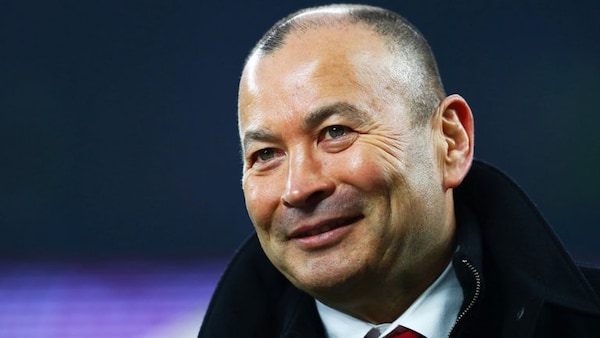
http://www.skysports.com/rugby-union/news/12504/10301785/eddie-jones-targets-victory-in-brisbane-as-england-touch-down-in-australia
Leading up to and during the 2015 RWC, Australian Eddie Jones was the Brave Blossoms’ coach. Having successfully coached the Suntory Sungoliath company team to a Top League title in 2012, he soon became the national coach of Japan. His goal was to bring the Japan team into the top 10 in world rugby, but only by first reducing the number of foreign players and then letting the locals play their own "Japanese" style.
Throughout Jones’ tenure, Japan beat traditional rugby powerhouses Wales 23-8 and Italy 26-23, and completed a remarkable period of 10 consecutive victories that set a record for a tier-two nation. In 2014, after beating Romania 18-13, Japan rose to ninth in the world rankings, their highest-ever ranking, thus realizing Jones’ goal of reaching the top 10 in the world.
After the World Cup, Eddie Jones resigned from Japanese rugby and is now the coach for England. Looking back, Japan greatly benefited from his coaching style—especially with that incredible first game of the 2015 RWC!
8. New Coaching Staff Appointed
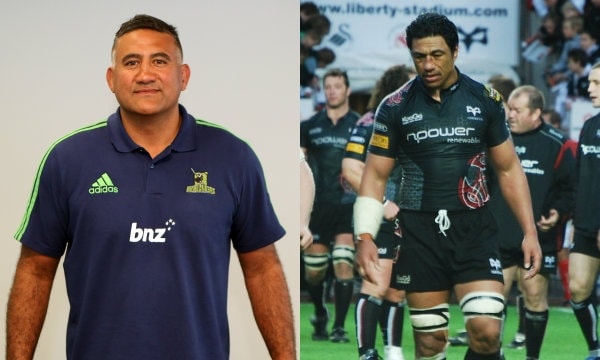
http://freshwater24.hateblo.jp/entry/2016/01/21/151334
The new national coach will be Jamie Joseph, a New Zealander best known for guiding the Highlanders to the 2015 Super Rugby Championship title and to the semi-finals in 2016. Moreover, he's no stranger to Japanese rugby, having played for the Sanix Blues (1995-2002). He also represented Japan at the 1999 RWC.
According to the new coach, fans should expect a rebuilding stage, which means blooding out new players and trying to play as many top-tier teams as possible before 2019 RWC. On the downside, the Brave Blossoms may not win too many games at first, but Japan must be ready and strong as hosts of the next World Cup.
As for the Sunwolves, they'll be coached by Filo Tiatia, who replaces outgoing coach Mark Hammett. Both Tiatia and Joseph will be working closely together to take Japanese rugby to the next level. Ideally, it would be great if most of the national side played for the Sunwolves, but just getting players to sign has been a tough enough challenge.
9. 2017 Sunwolves Super Rugby Schedule
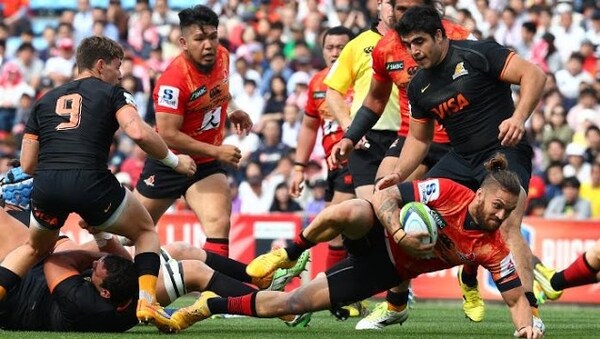
http://www.perthnow.com.au/sport/rugby/sunwolves-stun-jaguares-3628-for-historic-super-rugby-win/news-story/4fe2e0dd272fd12be2544e4f8c5df5de
The Sunwolves will play a total of 15 matches, with just four home games at Prince Chichibu Memorial Stadium on February 25, April 8, May 27 and July 15, 2017. They also have three games in Singapore, which is their second home ground, and where South African teams prefer to play at due to shorter flying distances. In fact, during this tournament, the Sunwolves are expected to travel almost 130,000 kilometers (80,778 mi), which is over three times the circumference of the globe—a very unforgiving travel schedule that will test the players to the extreme. This season they will face the New Zealand sides they didn’t face last season, as well as the South African teams. Tiatia will have his hands full here, but we hope he can continue building on the foundations set by Hammett.
So, will Japan perform better at the 2019 Rugby World Cup? It would appear so, given that their national side have continued to hire excellent coaching staff and also have a Sunwolves team playing in the best rugby competition in the world. With only a little over two years to go, preparations are being made and new fans are appearing. It’s an exciting time for Japanese rugby, and as hosts of the next World Cup they'll be out to prove just how much they've improved since their last showing. The cherry-red-and-white supporters are counting on it!

